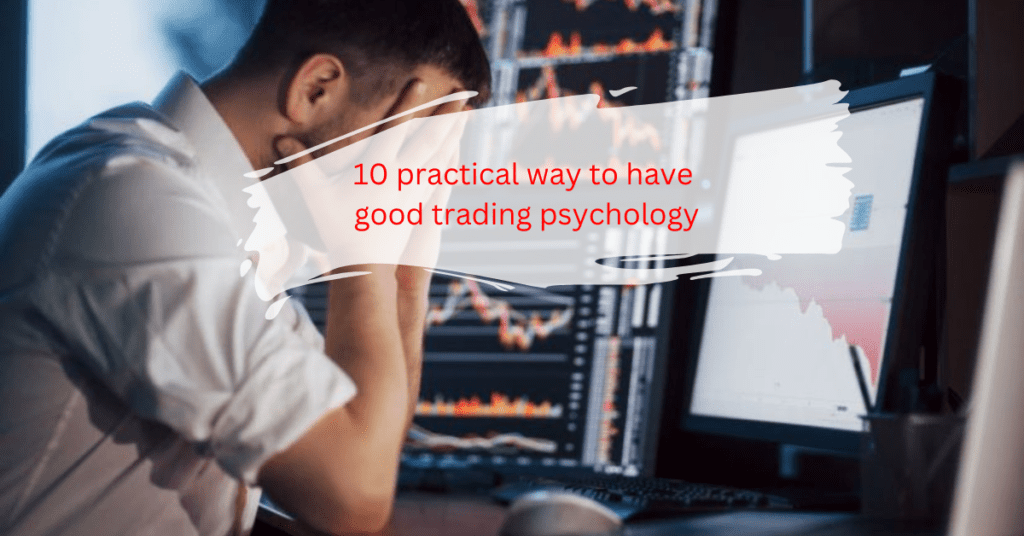Forex psychology, also known as trading psychology, refers to the mental and emotional aspects of trading in the foreign exchange market. It involves understanding and managing your own emotions and behaviours as a trader, as well as understanding how market dynamics can affect investor sentiment and decision-making.
Good forex psychology can be crucial for success in the market, as it can help traders make sound, rational decisions and avoid letting their emotions get the best of them. This can involve developing strategies for managing stress, controlling risk, and staying disciplined and focused. Forex psychology can also involve learning how to manage and overcome common psychological pitfalls that can affect traders, such as fear, greed, and overconfidence.
READ MORE:
here are 10 practical ways to develop trading psychology:
- Setting clear goals and objectives: Having specific goals in mind can help you stay focused and motivated, and can also help you measure your progress.
- Developing a trading plan: A trading plan can help you make consistent decisions and avoid emotional reactions to market movements.
- Practicing risk management: Managing risk effectively is essential for long-term success in the forex market. This includes setting stop-loss orders and using other risk management techniques such as position sizing.
- Staying informed: Keeping up with market news and analysis can help you stay on top of market trends and make informed trading decisions.
- Getting a mentor: Working with a mentor or coach can provide valuable guidance and support as you develop your trading skills.
- Joining a trading community: Connecting with other traders can provide valuable insights and support as you navigate the markets.
- Seeking professional help: If you are struggling with your trading psychology, consider seeking help from a mental health professional who has experience working with traders.
- Setting realistic expectations: It is important to have realistic expectations about what you can achieve in the forex market. This can help you avoid getting overly optimistic or pessimistic about your trades.
- Taking breaks: Taking regular breaks can help you stay fresh and avoid burnout.
- Practicing mindfulness: Practicing mindfulness and staying present in the moment can help you stay focused and avoid getting overwhelmed by the constant stream of information in the forex market.
Thanks for visiting FOREX GOATS kindly visit us again.

